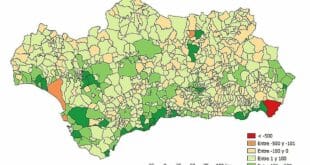The World Family Business Index has ranked two Spanish companies among the 50 biggest family retailers in the world. According to World Family Business Index the Ortegas and Roigs are in the top 50 of the largest family businesses by turnover. This list includes 19th century family businesses like the German Bosch (founded 1866) or Swiss Roche (founded 1896). The World Family Business Index has compiled the list every two years over the last decade, with the University of St Gallen consulting firm and EY. SUR had exclusive access to the list.
“It’s a fact that Inditex, with its two business models and sectors, is a successful example of leadership, profitability and efficiency in the areas they serve. These models are studied by many business schools throughout the world, and show how talent, hardwork and ability can shape the future of Spanish families businesses and managers.
According to the report, the clothing empire that Amancio Ortega built from his first company, the GOA, which his daughter Marta assumed in 2022, climbed to 43rd position from 51st with a revenue of nearly 36 billion euros. The company’s latest results, which were recently released, show that the sales growth for 2024 will be 7.5% and reach 38.63billion euros. Inditex has now risen to the eighth position in the world for the retail segment.
Mercadona climbed up six positions to 48th place thanks to its 33.1 billion euro turnover, which was included in the index. (Its latest results for 2024 increased its turnover by 9 per cent to 38.8 milliards euros). It was ranked 47th in 2021. Spain grew in 2025, with 13 family businesses on the list. This is compared to a previous review of 500 companies where almost half (47%) were European.
In addition to the flagships of Spanish retail, eleven other Spanish companies are among the half a thousand companies in this category globally: Acciona, El Corte Inglés, Gestamp, Ferrovial, Grifols, Catalana Occidente, Antolín, Puig Brands, Prosegur and Técnicas Reunidas.
“The evolution is very positive, with two new companies this year in the on the list of the top 500, in markets where Spanish companies are also leaders, such as Barceló (269th place) in the hotel and tourism sector, and Puig (393rd place) in the premium beauty products sector. “This shows the ability of Spanish family firms to grow, internationalise and be resilient,” Ruiz-Roso says.
The 13 Spanish companies that are included in this ranking together generate around 171 million euros in revenue, and over 735,200 employees.
Clear German leadership
Overall, there are 78 German firms. They are followed by France (27), Monaco (27), Italy (22) Switzerland (17) and United Kingdom (14) Spain follows with 13. In detail, however, the most relevant information for this analysis is the average annual income of our companies. They compete with German companies on average income, as well as the average size and number of small and medium enterprises (SMEs) in Spain compared to German firms. In Spain, a typical company employs about 4.7 people. Germany, on the other hand, has around seven employees. “This shows you that in order to be financially sustainable and resilient, it is important to have a large company.” It also highlights the importance of growth in an increasingly globalized world, says Ruiz Rosa.
Antolin is the only one out of thirteen to have a female at the wheel
The Global Company Index also looks at the diversity of their board of directors, including gender representation and family clans. It also considers the influence of family votes on business decisions. Cristina Blanco, the only woman CEO in this category of Spanish companies who is not a member of the founding families is Cristina Blanco from Grupo Antolin. At Inditex, the position of CEO is held by Óscar García Maceiras, while Marta Ortega is the non-executive chairwoman. At El Corte Inglés the CEO is Gastón Bottazzini and Marta Álvarez, the founder’s niece, is the chairperson. Christian Gut Revoredo leads Prosegur while Helena Revoredo his mother is the president. The 2025 Index reveals that over 92% of positions in the executive management or board of directors are held by members of a family. Mercadona Grupo Antolin y Puig are the three companies with a higher or equal percentage of their voting control being controlled by family members. In Grifols and Técnicas Reunidas this percentage is less than or equal to 35%.
 Costa News Spain Breaking News | English News in Spain.
Costa News Spain Breaking News | English News in Spain.







